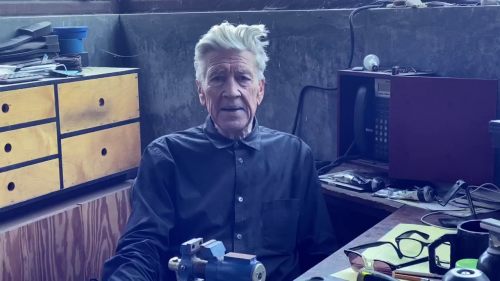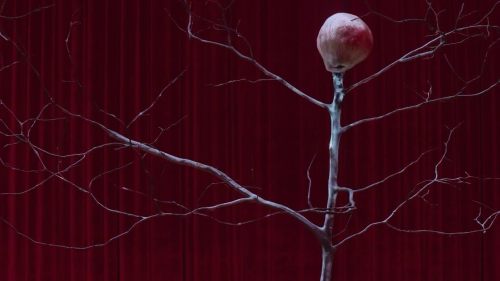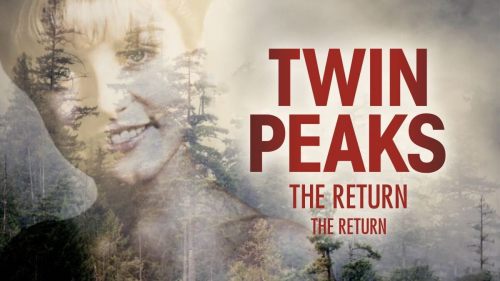TWIN PEAKS: THE RETURN Review: Part 13
Twin Peaks’ reality is not our own. Sure, it looks and in some ways behaves like it, but our plane of existence parted ways with the show’s long ago - likely some time around the White Sands atomic tests. The show features a number of elements commonplace on TV - the FBI, organised crime, UFOs, workplace drama - but none of it functions like anywhere else. The FBI, for example, is driven by empathy, intuition, and zero actual police work, while major insurance firms make multimillion-dollar decisions based on inscrutable doodlings. Everything works on feelings and spiritualism in this world, with little concern for traditional logic. Maybe that’s a better way to live. Maybe it’s not. It’s certainly more interesting.
Following up on last week’s FBI-centric episode, Part 13 completely forgoes the Bureau, for once, focusing instead on the two Coopers and a host of banal goings-on in Twin Peaks.
Over at Lucky 7 Insurance, the Mitchum Brothers are hosting a party, and Dougie Jones is invited. I can’t imagine what the atmosphere was like on set with Robert Knepper, James Belushi, and Kyle MacLachlan cunga-lining through the corridors, but I hope the more-Radiohead-than-Radiohead music from the episode was part of it. About the only Lucky 7 staffer not joining the party is Anthony Sinclair (Tom Sizemore), now in deep shit with the mob (as personified by Patrick Fischler’s excellently-named Mister Todd) for failing to deliver Dougie’s head on a plate. Instead, he’s delivered cigars, diamond cufflinks, BMWs, and a spectacularly unsettling gym set to Dougie and his boss. So Sinclair asks one of his crooked cop buddies for some poison, so he can do the job himself.
The poisoning does not go well. Sinclair takes Dougie out for coffee, which proves to his chief mistake. It’s unclear whether Dougie’s childlike joy over coffee and pie is what sets Sinclair off, or whether he gets caught with poison powder, dandruff-like, on his shoulders, but whatever the cause, Sinclair breaks down, confessing everything to their shared boss. What a great, bizarre scene: Tom Sizemore, blubbing with guilt, being “interrogated” by poor parroting Dougie, over-confessing to the point that his boss forgives him for everything up to and including attempted murder, as long as he'll testify in court. “I only want to die or change,” he sobs - a distant cousin of Gordon Cole’s “fix your hearts or die” early in the season.
He’d better change: just about everyone involved in this criminal endeavour is proving shockingly, hilariously inept. It’d be Coenesque if it wasn’t so Lynchian.
The one consistently effective member of Twin Peaks: The Return’s criminal underworld is of course Evil Cooper, this week seeking revenge and information from one-time cohort and subsequent-time murderer Ray. Ray works for Renzo (Derek Mears), leader of a gang of ruffians and owner of the world’s largest surveillance monitor. Renzo got where he is, adorably, through the gang’s weirdo arm-wrestling code of conduct. So, then, it’s up to dirt-encrusted Evil Cooper to arm-wrestle Renzo as The Happening’s hot dog enthusiast Frank Collison eggs them on.
Let’s talk for a moment about how balls-out great Kyle MacLachlan has been this season. Between his delicate, floaty work as Dougie and his Terminator-esque chilliness as Evil Coop, this is a comeback defined by total control of vastly different characters. MacLachlan is downright terrifying in his Evil Coop appearance this week, visibly toying with Mears’ character yet taking no pleasure from it. It’s a great scene, punctuated by Evil Coop punching a crater into Renzo’s face and tied up with a surprisingly dense dump of exposition from the short-lived Ray.
Turns out it’s Phillip Jeffries (David Bowie’s Fire Walk With Me character and one-time Blue Rose task force leader) who hired Ray to kill Evil Coop. Ray was also given a ring to put on Cooper’s finger - a ring he’s then forced to put on himself. Finally, he reveals Jeffries’ location as “The Dutchman’s,” before being killed and sent to the Red Room. There’s a lot of symbolism here with clear significance in the show, the ring being a prominent recurring image, but frankly I’ll be bollocked if I understand much of it. I don't even know if it's that important that I do.
I do understand that Richard Horne has seen Evil Cooper’s face now, though, and that - if fan speculation is correct - he could well recognise him as his father. Maybe we'll see the storylines start to coalesce a bit more next week.
I certainly hope so, because the events taking place in Twin Peaks itself this week are disconnected, obtuse, and frustrating to anyone trying to put them together logically. Some barely progress the story at all, paying lip service to Shelly and Steve’s domestic dispute or Major Briggs’ bequeathals; others, such as Norma’s franchising meeting with business partner / lover Walter, seem designed purely to distract from it. Big Ed’s quiet, lonely reverie at his Gas Farm is entirely tonal in nature; while some have obsessed over reflections and gas-station symbology and the piece of paper Ed burns, he could simply just be an old man sitting there being sad about his life and lost love.
While they don't necessarily make sense, all these scenes are entertaining in their own ways, like Nadine eagerly proclaiming herself Dr. Jacobi’s “foot soldier, or shoveler,” or the quietly chilling vignette of Sarah Palmer drinking endless Bloody Marys and watching a ten-second loop of old boxing footage. Placed within the context of the rest of the season, it all forms an emotional tapestry of a town tipped irreversibly askew. Only James Hurley’s appearance brings us to some semblance of familiarity, in a magnificent piece of audience-trolling on Lynch’s part, as he performs “Just You” again (!) in his familiar falsetto. God help us.
One thing’s abundantly clear about the happenings in Twin Peaks, and in Twin Peaks: The Return: time isn’t entirely what it seems. Either Lynch has shifted scenes around in the edit suite to fit the show into hourlong episodes, or the various storylines are operating on different timescales, because the passage of time is inconsistent at best. Bobby talks about events from several episodes ago as if they only just happened; Audrey and Charlie carry on their argument from last week, in a different location, as though they haven’t missed a beat (and Audrey speaks in such existential terms that there’s been discussion amongst the BMD staff that she could still be in her coma). There’s also a heavy emphasis on repetition throughout the series. The most likely explanation is that the events taking place in Twin Peaks - the only major story location that doesn’t connect directly to any other yet - will only actually slip into sync in the show’s endgame. This is going to be a damn intriguing show to do a repeat viewing of, when it's all over with.
We’re well and truly heading towards that point now, for better or worse. Five episodes to go, and we’re just as in search of answers as when we started this whole beautiful mess. Hilariously so, even, as the police-detective Fusco brothers happen upon the truth about Dougie Jones’ identity only to discard it in a fit of laughter and incredulity. Perhaps the story simply doesn’t want to resolve. Perhaps the whole thing is David Lynch playing "Just You" one more time. I don't care; I love it.



